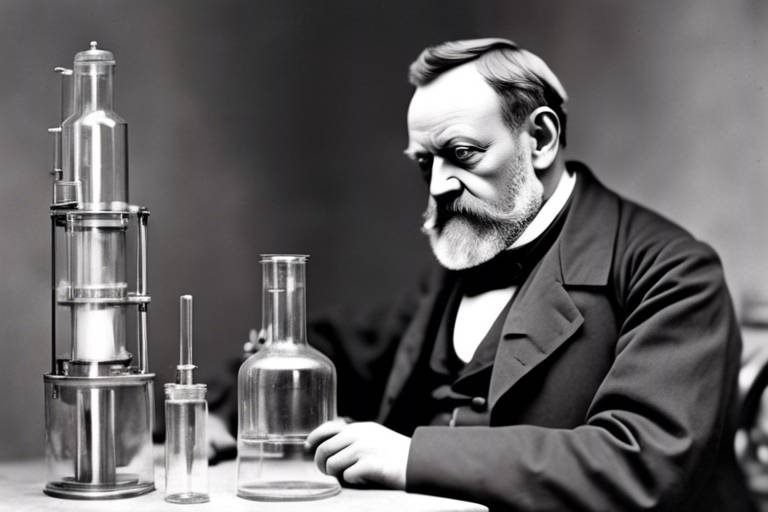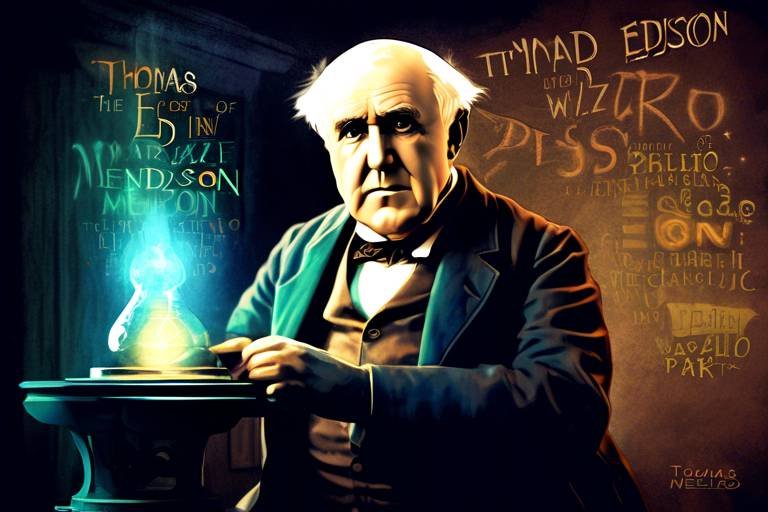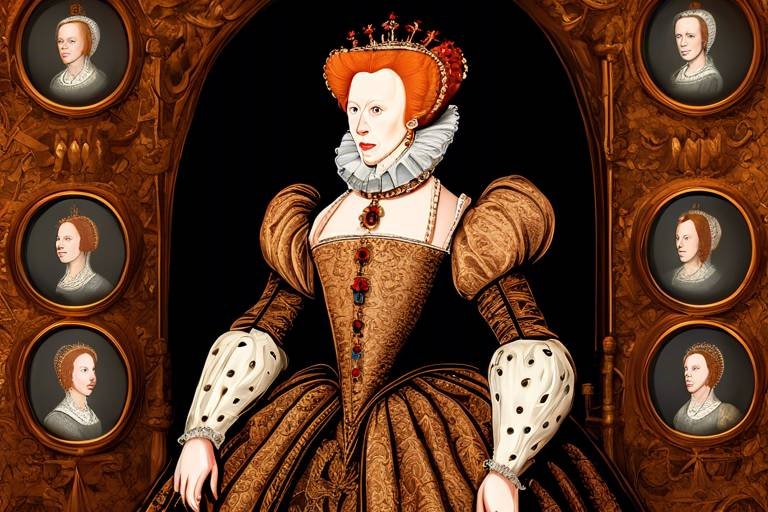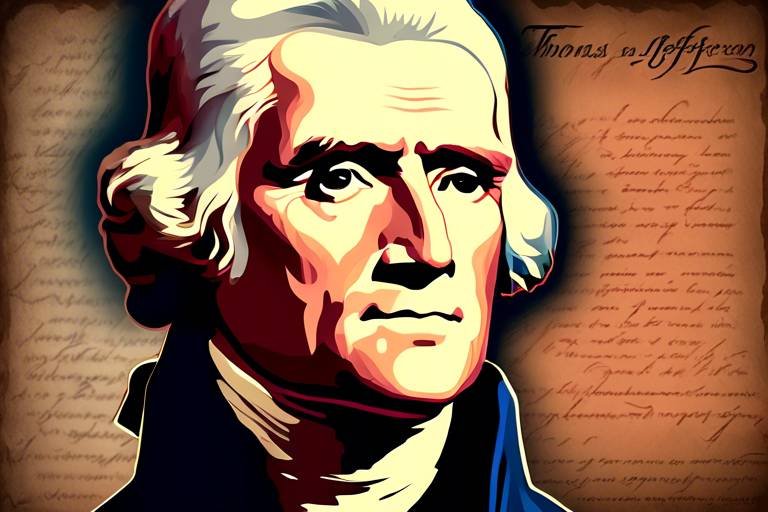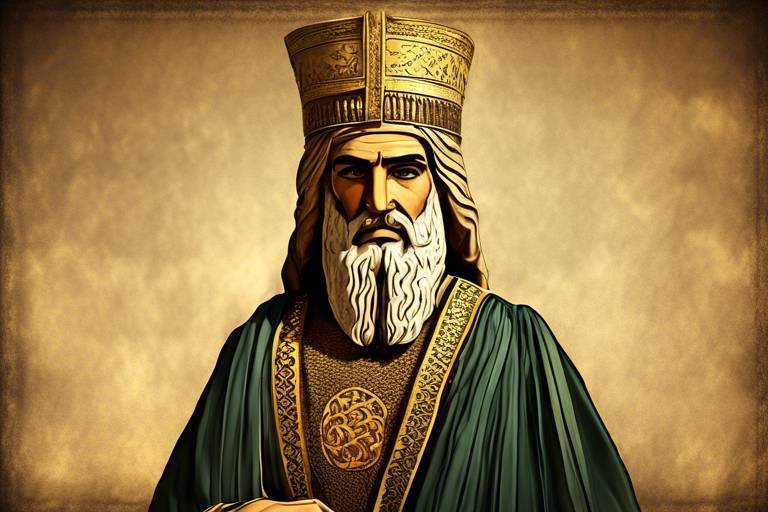Pasteur: The Innovator in Vaccination
Louis Pasteur, a name synonymous with innovation in the field of vaccination, revolutionized modern medicine and public health through his groundbreaking work. His contributions have had a lasting impact on how we prevent and combat infectious diseases.
From a young age, Pasteur showed a keen interest in science and medicine. His rigorous education and early influences fueled his passion for research and discovery. This foundation would later shape his remarkable career in the field of microbiology.
One of Pasteur's most significant achievements was the development of the germ theory of disease. Through meticulous experiments and observations, he identified the role of microorganisms in causing infections, laying the groundwork for modern medical understanding.
Building upon his research on microorganisms, Pasteur made a groundbreaking advancement in the field of vaccination by creating the first successful rabies vaccine. This achievement marked a turning point in the history of vaccination, demonstrating the power of preventive medicine.
The legacy of Pasteur's work extends far beyond his lifetime. The establishment of Pasteur Institutes around the world continues to drive research on infectious diseases and vaccination, perpetuating his commitment to public health.
Today, modern vaccination practices have been significantly influenced by Pasteur's pioneering efforts. His contributions have shaped strategies for preventing infectious diseases, saving countless lives and improving global health outcomes.
Despite his remarkable achievements, Pasteur faced numerous challenges and controversies during his career. From skepticism about the efficacy of vaccines to political opposition, he persevered in his mission to promote vaccination and advance medical science.
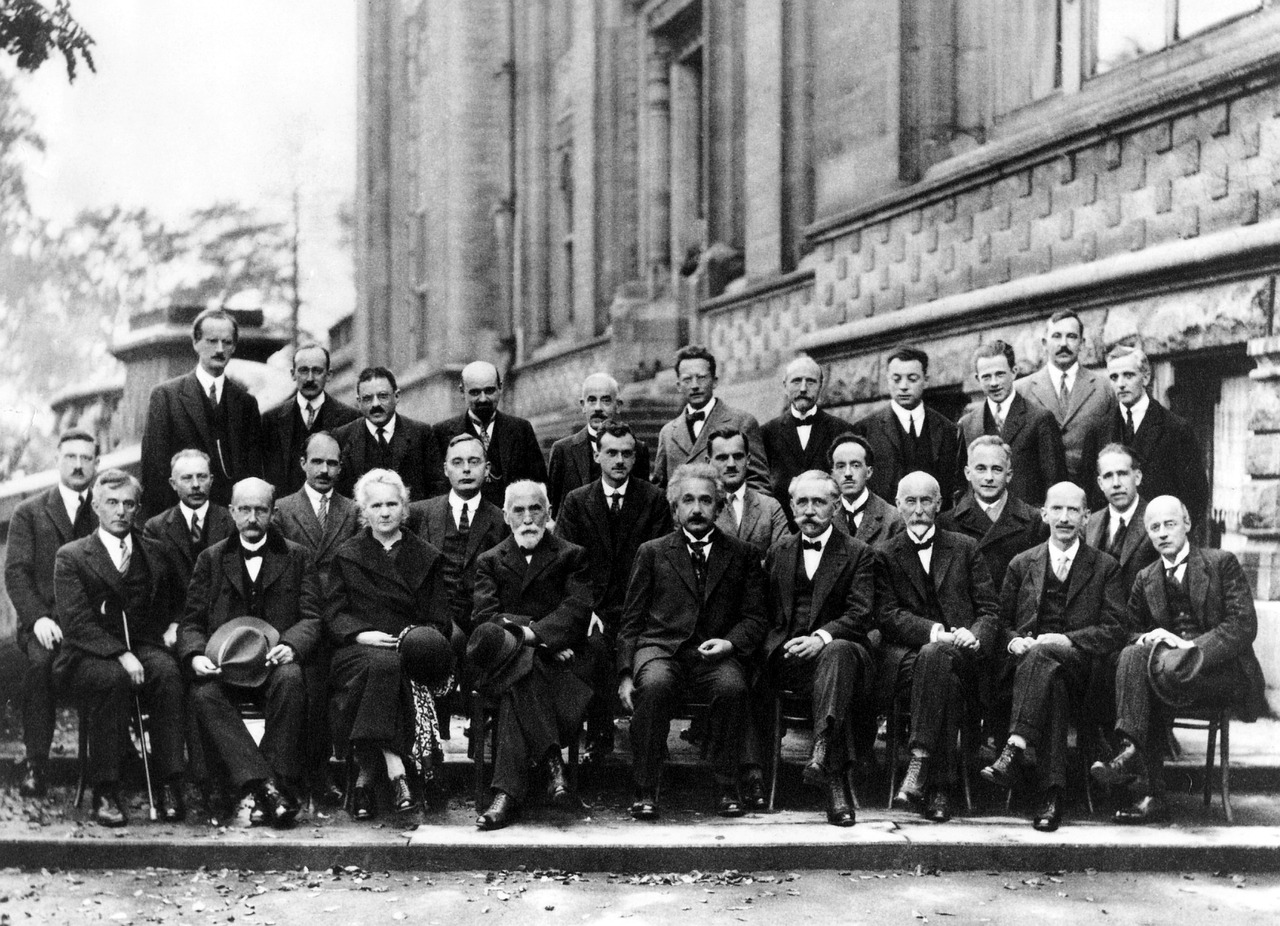
Early Life and Education
Explore the groundbreaking work of Louis Pasteur in the field of vaccination and its impact on modern medicine and public health.
Discover Louis Pasteur's background, education, and early influences that shaped his interest in science and medicine.
Louis Pasteur was born on December 27, 1822, in Dole, France. Growing up in a humble family, he showed an early aptitude for academics and attended the Royal College of Besançon. His interest in chemistry and biology blossomed during his time at the École Normale Supérieure in Paris, where he excelled in his studies.
During his education, Pasteur was influenced by the works of scientists such as Antoine Bechamp and Claude Bernard, who sparked his curiosity in the microscopic world and the mysteries of infectious diseases.
Learn about Pasteur's experiments and discoveries that led to the establishment of the germ theory of disease and revolutionized medical understanding.
Understand how Pasteur's research on microorganisms laid the foundation for his work in developing vaccines.
Explore Pasteur's pioneering efforts in creating the first successful rabies vaccine and its significance in the history of vaccination.
Examine the lasting impact of Pasteur's work on vaccination, public health practices, and the field of immunology.
Learn about the establishment of Pasteur Institutes worldwide to continue research on infectious diseases and vaccination.
Understand how Pasteur's contributions have influenced modern vaccination practices and strategies for preventing infectious diseases.
Discuss the challenges and controversies faced by Pasteur during his career in promoting vaccination and combating skepticism.

Development of Germ Theory
Louis Pasteur's groundbreaking work in the development of the germ theory of disease revolutionized the field of medicine and paved the way for modern vaccination practices. Through a series of meticulous experiments and discoveries, Pasteur was able to identify microorganisms as the root cause of many infectious diseases, challenging prevailing medical beliefs of his time.
By studying the role of microorganisms in fermentation processes, Pasteur made significant strides in understanding the connection between germs and disease. His experiments conclusively demonstrated that microorganisms were responsible for the spoilage of food and the spread of illness, leading to the establishment of the germ theory.
One of Pasteur's most notable achievements was his development of a successful rabies vaccine, a feat that solidified his reputation as a pioneer in the field of vaccination. By attenuating the rabies virus and administering it to patients, Pasteur demonstrated the effectiveness of vaccines in preventing deadly diseases.
Moreover, Pasteur's research laid the foundation for the development of vaccines against other infectious diseases, saving countless lives and reducing the burden of illness on society. His work not only advanced medical science but also transformed public health practices, emphasizing the importance of preventive measures in combating epidemics.
Through his dedication to scientific inquiry and relentless pursuit of knowledge, Louis Pasteur forever changed the landscape of medicine and public health. His contributions continue to inspire researchers and healthcare professionals to this day, underscoring the enduring legacy of his work in vaccination and infectious disease control.

Identification of Microorganisms
Louis Pasteur's groundbreaking work in the identification of microorganisms paved the way for significant advancements in the field of vaccination. Through meticulous experimentation and observation, Pasteur was able to observe and identify various types of microorganisms, including bacteria and viruses, that were responsible for causing diseases in humans and animals.
One of Pasteur's most notable contributions in this area was his work on the silkworm disease, which led to the discovery of the causative agent, a protozoan parasite. This discovery not only helped in understanding the disease but also laid the foundation for further research on identifying and combating other disease-causing microorganisms.
Using his newly acquired knowledge of microorganisms, Pasteur went on to develop effective vaccination techniques by isolating and attenuating the pathogens responsible for diseases. By studying the behavior and characteristics of these microorganisms, he was able to create vaccines that could stimulate the immune system to produce a protective response without causing the actual disease.
Furthermore, Pasteur's identification of specific microorganisms in different diseases enabled him to tailor his vaccination methods to target these pathogens directly. This personalized approach to vaccination was a significant departure from earlier practices and greatly improved the efficacy of preventive measures against infectious diseases.
Through his relentless pursuit of understanding microorganisms and their role in disease, Louis Pasteur revolutionized the field of vaccination and set the stage for modern immunology. His work not only saved countless lives but also laid the groundwork for future advancements in medical science.

Vaccination Against Rabies
When it comes to Louis Pasteur's remarkable contributions to the field of vaccination, his work on developing the first successful rabies vaccine stands out as a true milestone in medical history. Pasteur's groundbreaking efforts in creating the rabies vaccine not only saved countless lives but also paved the way for future advancements in the field of immunization.
The development of the rabies vaccine was not without its challenges. Pasteur and his team faced numerous obstacles, including the need to find a way to weaken the rabies virus while still maintaining its ability to stimulate an immune response. Through meticulous experimentation and dedication, Pasteur was able to successfully create a vaccine that was both safe and effective in preventing rabies infection.
One of the most famous cases demonstrating the efficacy of Pasteur's rabies vaccine is the treatment of a young boy named Joseph Meister, who was bitten by a rabid dog. Despite the dire circumstances, Pasteur administered his experimental vaccine to the boy, ultimately saving his life and solidifying the success of the rabies vaccination.
The significance of Pasteur's work in developing the rabies vaccine cannot be overstated. Not only did it mark a major breakthrough in the prevention of a deadly disease, but it also showcased the power of vaccination in combating infectious illnesses. Pasteur's success with the rabies vaccine laid the foundation for future advancements in vaccine development and set a high standard for the efficacy and safety of immunization practices.

Legacy and Impact
Louis Pasteur's legacy in the field of vaccination and public health is one of unparalleled significance. His pioneering work not only revolutionized medical practices but also laid the foundation for modern immunology as we know it today. By delving into Pasteur's contributions, we can truly grasp the profound impact he has had on shaping the course of medical history.
The establishment of Pasteur Institutes across the globe stands as a testament to his enduring legacy. These institutes continue to spearhead research on infectious diseases and vaccination, carrying forward Pasteur's mission to combat deadly pathogens and safeguard public health. Through his visionary approach, Pasteur set in motion a chain of scientific advancements that have saved countless lives and prevented widespread outbreaks.
Pasteur's influence extends beyond the realms of academia and research, permeating into everyday practices of disease prevention. His innovative techniques and discoveries have paved the way for modern vaccination practices, shaping strategies that are instrumental in preventing the spread of infectious diseases worldwide. The impact of his work resonates in the meticulous protocols followed in vaccine development and distribution, ensuring the safety and efficacy of immunization programs.
Despite the challenges and controversies that marked his career, Pasteur's unwavering dedication to promoting vaccination has left an indelible mark on the landscape of public health. His relentless pursuit of scientific truth in the face of skepticism and opposition serves as a beacon of inspiration for future generations of researchers and healthcare professionals. The legacy of Louis Pasteur serves as a reminder of the transformative power of scientific inquiry and the enduring impact it can have on society.

Establishment of Pasteur Institutes
One of Louis Pasteur's most enduring legacies is the establishment of Pasteur Institutes, which have played a pivotal role in advancing research on infectious diseases and vaccination. These institutes, founded in various countries around the world, serve as hubs of scientific innovation and collaboration in the field of microbiology and immunology.
At these institutes, dedicated teams of researchers continue to build upon Pasteur's groundbreaking work, striving to develop new vaccines, improve existing ones, and deepen our understanding of how infectious diseases spread and can be controlled. The legacy of Pasteur lives on through the ongoing efforts of these institutes to combat global health threats.

Modern Vaccination Practices
Modern vaccination practices have evolved significantly since Louis Pasteur's pioneering work in the field. Today, vaccines play a crucial role in preventing a wide range of infectious diseases, from childhood illnesses to seasonal flu strains. The development of vaccines has become more sophisticated, with advancements in technology allowing for the creation of vaccines that are safer, more effective, and targeted to specific populations.
One of the key aspects of modern vaccination practices is the emphasis on herd immunity, which occurs when a significant portion of a population is immune to a particular disease, thereby providing indirect protection to those who are not immune. This concept is crucial in protecting vulnerable individuals who may not be able to receive vaccines due to medical reasons.
Furthermore, the administration of vaccines has become more streamlined and accessible, with vaccination campaigns being conducted in various settings such as schools, workplaces, and community centers. This approach aims to increase vaccine coverage rates and ensure that a larger portion of the population is protected against preventable diseases.
In addition, ongoing research and development in the field of immunology have led to the discovery of new vaccine candidates and approaches. Scientists are continually working to improve existing vaccines, develop vaccines for emerging infectious diseases, and enhance the efficacy of vaccination strategies.
Overall, modern vaccination practices are built upon the foundation laid by Louis Pasteur, emphasizing the importance of preventive medicine and public health interventions. By staying informed about the latest recommendations and guidelines regarding vaccination, individuals can contribute to the collective effort of reducing the burden of infectious diseases on a global scale.

Challenges and Controversies
Louis Pasteur faced numerous challenges and controversies throughout his career as he worked tirelessly to promote vaccination and combat skepticism. One of the major challenges Pasteur encountered was the resistance from the medical community and the general public towards his revolutionary ideas. At a time when the concept of germs causing diseases was still widely debated, Pasteur's germ theory faced significant opposition and skepticism.
Moreover, Pasteur's approach to vaccination, which involved using weakened or attenuated forms of pathogens to stimulate the immune system, was met with apprehension and criticism. Critics raised concerns about the safety and efficacy of these early vaccines, leading to heated debates within the scientific community.
Another significant controversy that Pasteur faced was the accusation of scientific misconduct and unethical practices. Some of his contemporaries questioned the validity of his experimental results and accused him of manipulating data to support his theories. Despite these challenges, Pasteur remained steadfast in his pursuit of scientific truth and continued to advocate for the importance of vaccination in preventing infectious diseases.
Frequently Asked Questions
- What is Louis Pasteur known for?
Louis Pasteur is renowned for his groundbreaking work in the field of vaccination, particularly for developing the first successful rabies vaccine. His contributions revolutionized medical understanding and laid the foundation for modern immunology.
- How did Pasteur's germ theory impact medicine?
Pasteur's germ theory of disease transformed medical practices by establishing the link between microorganisms and infectious diseases. This theory led to significant advancements in hygiene, sterilization techniques, and the development of vaccines.
- What are the Pasteur Institutes?
The Pasteur Institutes are research centers established worldwide to continue Louis Pasteur's work on infectious diseases and vaccination. These institutes play a crucial role in advancing scientific knowledge and developing strategies to combat global health threats.
- How have Pasteur's contributions influenced modern vaccination practices?
Pasteur's pioneering efforts have had a profound impact on modern vaccination practices by emphasizing the importance of preventive medicine. His work has shaped the development of vaccines against various infectious diseases, leading to improved public health outcomes.
- What challenges did Pasteur face in promoting vaccination?
Throughout his career, Louis Pasteur encountered challenges and controversies in promoting vaccination, including skepticism from the scientific community and the general public. Despite these obstacles, his perseverance and dedication to scientific research ultimately led to significant advancements in the field of immunization.

